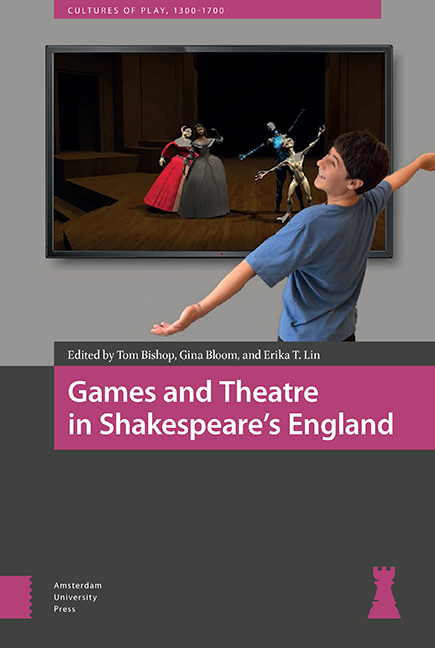9 - Videogames and Hamlet: Experiencing Tragic Choice and Consequences
Published online by Cambridge University Press: 21 October 2021
Summary
Abstract
This chapter argues that videogames help us to see tragedy as a form of serious play, engaging the dynamics of choice and consequences in developing character and plot. It represents Hamlet as a gamelike play in the context of its adaptation into videogames, including Ryan North’s “To Be or Not to Be”: A Chooseable-Path Adventure; Hamlet, or The Last Game without MMPORG Features, Shaders and Product Placement; Robin Johnson's The Most Excellent and Most Lamentable Text Adventure of Hamlet, Prince of Denmark (2003); and Elsinore (2019). Often now viewed as a paradigmatic early modern tragedy, it is also a powerful example of how games and tragic theatre can inform each other.
Keywords: videogames; Hamlet; tragedy; choice; agency
In the videogame called The Stanley Parable, the player inhabits an avatar named Stanley, who punches computer buttons all day. A soothing voice with a British accent begins the game with a past-tense narration, telling the player that one day Stanley found himself unaccountably alone. The player starts by moving in concert with the narration, and Stanley emerges from his office to seek his absent colleagues, and thus embarks on an adventure, the nature of which will depend on the player's choices along the way. The narrator leads the player early on to a room where the player must choose which door Stanley enters, the left or the right. The narrator says Stanley entered the left one, but the player can also go in the right door, in effect disobeying the narrator. If the player chooses the left door and conforms with the narration throughout the short story, Stanley can escape the office building and its “mind-control machine,” and the player will be told Stanley is “free” and that he has achieved happiness. If the player disobeys the narrator at any point, those choices can lead to many different endings, where, for example, Stanley might die, stay in a broom closet, get lost in an infinite loop, go mad, or even enter another game.
The Stanley Parable thus not only parodies the mechanisms of choice that underlie most videogames but also exposes a fundamental tension at the heart of tragic theatre: the conflict between a narrative's drive towards a satisfying conclusion and its need to imply that characters are free to make choices, however terrible.
- Type
- Chapter
- Information
- Games and Theatre in Shakespeare's England , pp. 229 - 254Publisher: Amsterdam University PressPrint publication year: 2021



